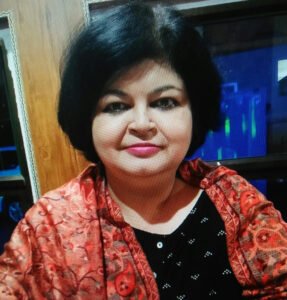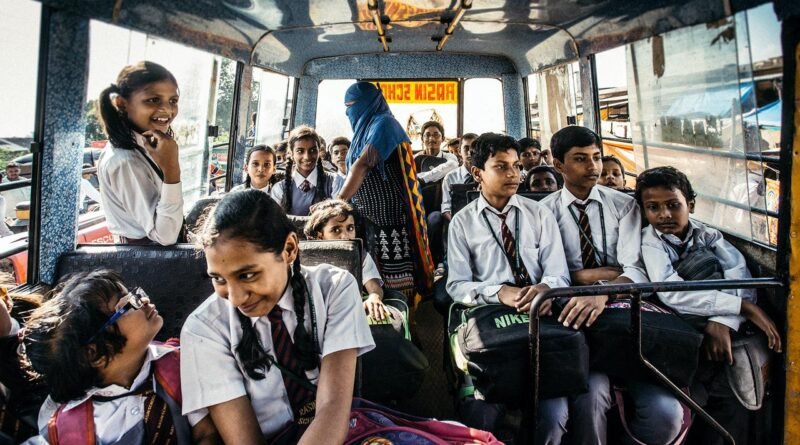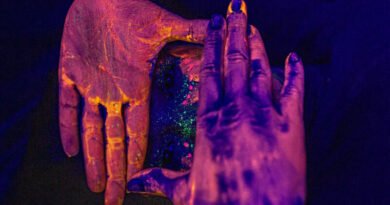The Summons
The Summons
Indrani Rai Medhi
Ankit Chowdhury walked out of the classroom in long, loping strides, his maroon tie flapping and his shirt collar wilted. To be eleven was not the happiest stage in a boy’s life. There was a tiny, treacherous moustache creeping out above his upper lip, among other things. These days, when he opened his mouth to speak, two things usually happened. The sound that came out was a thin, girlish quaver, or a deep, hoarse growl. The worst was when one sound followed the other, and it was like two people were speaking through him, as if he was a ventriloquist’s doll.
Ankit knew thirty-two pairs of eyes were following his retreating back. There was an excited little buzz around that room. He had created it, the way Benjamin Franklin tied a key to the end of a kite line, and flew the kite during a thunderstorm. When the key gave off sparks as lightning struck and he proved lightning is an electrical discharge.
It was a dangerous thing to do. You had to be man enough to do dangerous stuff. When he had flunked Hindi in the weekly test, he put his test copy on the table and surrounded by a ring of curious fellow eleven-year-olds, copied his father’s quirky signature, with its dots and flourishes, leaning back with a pleased look to examine his handiwork. They had all dared him to execute this little forgery and Bedanta had even promised to lend him Age of Empires for a week. The euphoria had lasted exactly twenty minutes. Some mean, treacherous creature, some worm from a smelly sewer had squealed to Shoma Miss, the class teacher. Shoma Miss’ eyes, magnified by her bifocals, bore into his for interminable seconds.
“Is it true?” she asked. “Ankit Chowdhury, have you forged your father’s signature?”
He stood up, running a quick hand through his hair. “Yes, Ma’am.”
“Do you know people go to prison for this?” She came and stood near him. “Do you know it is breaking the law? Answer me.” Shoma Miss rapped his desk with her wooden ruler. His Adam’s apple bobbed up and down. He felt a cramp in his bowels. The boys were too silent. When adults addressed him by his full name, it was not a good sign.
What are goose pimples? He remembered the answer in Hamlyns 500 questions. Goose pimples are little bumps that appear on our skin when we are cold. The cold air causes muscles at the base of hairs on skin to stiffen, resulting in these bumps. The hairs stand up, trapping air between them and giving the body some insulation against the cold. But it was not cold now. Another burning August afternoon. But he could feel them prickle his forearms, the nape of his neck, everywhere.
When the bell rang, Shoma Miss suddenly left the room, gathering up her books, her braid swinging on her broad back. He slumped into his seat relieved, but not for long. Hardev, the peon, came in. The Principal wanted to see him. The school courtyard seemed endless. There were boys playing basketball, letting out whoops of glee. Boys were bending down to drink water straight from the taps. The aroma of dosa and idli wafted from the canteen, to the west. But he was far away from these simple pleasures. Nobody knew what would happen.
The Principal’s room was dark. He blinked as his eyes tried to adjust from the sunshine outside. Father George leaned back on his chair, immaculate in his white cassock, the crucifix resting on his chest.
“Ankit Chowdhury,” he began in a deep, level voice “What you have done is shocking, criminal, forging someone’s signature …”
“My father’s, Sir.”
“Don’t interrupt me. You have been mediocre in studies. You refuse to cut your hair. You do not return library books on time. Always breaking some rule. But forgery …. I will have to talk to your father about this. Tell him to meet me on Monday morning. Now go back to class.”
Life had been good thirty minutes ago. He had carried out a perfect forgery and Bedanta was going to lend him the Age of Empires. The ring of faces around him had looked awed, admiring. Now, no one looked directly at him. He hung his head and kept doodling on his copy, waiting for the final bell to ring so he could leave and go for home.
Ankit Chowdhury, all of eleven, had recently found out how tough it was to be a boy with the awkward limbs and the funny voice and the shameful growth above his upper lip. But even before that, he knew it was impossibly hard to be a son. He got the feeling from his Papa that he was never good enough. Papa was a bureaucrat with his own PA and driver and a special government plate on his car. He carried work home, always popping Gelusils for acidity and was often on the phone, sometimes sounding respectful, sober, at other times bullying, hard, almost threatening. When Papa was at home, it meant several things – the television was to be switched off. Ankit was to sit at his table, pretending to study. His sister Asmita tied a sarong over her shorts and did not strike model-like poses before the mirror. His mother cooked an awful lot of food. Ankit feared his father more than he feared reptiles, Vlad the Impaler and the possibility of being trapped in a lift.
“You are going to give your father a heart attack one of these days,” his Ma told him sadly.
“You will kill him”
That had been the day Shoma Miss had called Ma to say he had called Karan Shitface.
“What’s wrong?” Asmita looked at him now. “Seen a ghost, Bacchu?”
He went to his room, undressed, showered, slipped into shorts and a T-shirt and lay down, curtains drawn. Ankit Chowdhury thought of many things. Him, two years old, on a tricycle, his father on his knees by him, stern, unsmiling. At seven, on a sea beach, his cruel, heartless father pushing him kicking and screaming into an oncoming wave. A radiant Asmita holding the best debater’s trophy, then in her Girl Guide uniform. His parents fighting over something he had done … low marks, fights with the boys … things he could not help doing. And now Papa called by the Principal on Monday morning. Something that beggared the imagination.
All though Sunday he prayed for something to happen. Something so gigantic, so monumental that a visit to the Principal’s office would be simply beyond anyone’s reckoning. Tremors from the bowels of the earth, houses collapsing, a nuclear war, some confused dictator pressing the red button somewhere, bubonic plague spreading across continents within hours, thousands of asteroids bombarding the planet, ice-bergs melting with a whoosh and drowning all land mass. But the hours went by without any television reports of catastrophes except for a car bomb in Syria. In his office next to the sitting room, his father made calls on the telephone, read the papers, met visitors. Ma made lunch and suspiciously noted how Ankit played with his food. But she paid him no attention. Later that afternoon, she would go out shopping with her friend. An unbelievable autumn sale was on at Arcadia.
Ankit Chowdhury actually fell sick at 6 am on Monday morning. His face felt warm, feverish, he had been to the toilet thrice, and his father’s enraged face, eyes bulging, mouth drawn into a nasty snarl, seemed to be fixed permanently before him. In half an hour, he would have to ask Kaushik Chowdhury, the bureaucrat with his own PA and driver and a government car to go to Mountford High and be insulted by the Principal.
Then, something did happen. Not tremors or asteroids. The doorbell ringing at 8:20 a.m. Ankit, jumpy as a rabbit on steroids, not having slept at night, rushed to unbolt the door. There were three men there, in safari suits, asking for Kaushik Chowdhury. The latter was in a crumpled kurta and pyjamas, bleary-eyed. Ankit’s mother put her hand on her mouth.
“I told you …. I told you to be careful,” she said in a hushed voice to her husband.
“Shut up!” he lashed at her “Listen”, his tone towards the safari suited men was low, wheedling,
“This is a mistake … let me call my lawyer.”
They were everywhere, these men. And apart from the familiar furniture, Ankit saw briefcases, files, stacks of currency notes that was straight out of the Bollywood films his father scoffed at. Kaushik Chowdhury now dressed in black trousers and a sober grey shirt. The media was waiting outside. His face had the menacing impassivity of a bull dog.
Ankit stood by the bedroom doorway, looking at his father.
“The Principal wants to meet you,” he said in a small voice.
His father stopped combing his thinning hair, turned his face towards him and said. “Principal? I have nothing to tell him.”
“He says you must come.”
“I can’t.” He shook his head. “I can’t. Tell him … tell him I am out of station. Tell him anything, I don’t care.” He turned away, shoulders hunched.
Ankit touched his father’s hand.
“It’s okay,” he said awkwardly, gently. “I’ll tell him.”

Indrani Rai Medhi is a journalist, columñist and author. She has won the Kunjabala Devi award for investigative award for women issues and the Yamin Hazarika award for excellence. She has authored 12 books.




